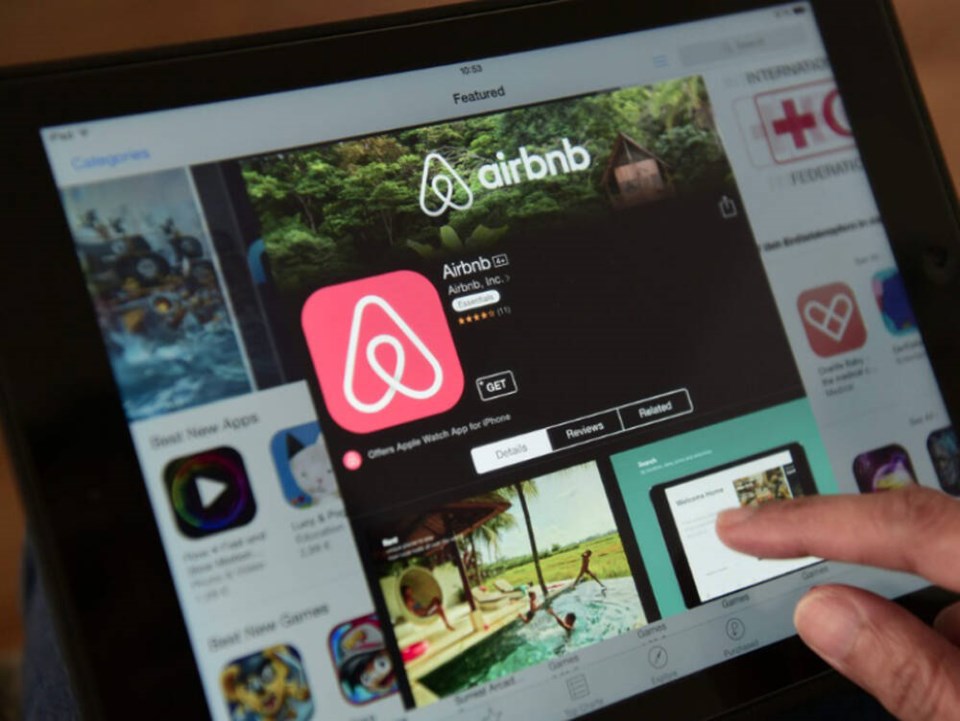Are short-term rentals like Airbnb and VRBO treasured guests in North Vancouver,
District of North Vancouver residents sounded off at an Oct. 10 public hearing about proposed new rules to legalize and regulate short-term rentals in the district, which are not currently permitted but rarely face enforcement.
As of Oct. 4, district staff had identified 1,018 short-term rental listings ( and almost ), or about three per cent of the total number of homes in the district.
Almost 90 per cent of those listed are for the entire dwelling unit, rather than just a single room shared in an owner’s home.
Under the proposed rules, hosts would only be granted a licence if they are offering their own principal residence for short-term rentals. The rule would also apply to secondary suites, so hosts could not offer basement apartments or coach houses unless they live in them.
“[It] is intended to help manage the neighbourhood impacts associated with short-term rentals and help ensure housing in the district is available for long-term renters and residents,” said Ryan Gilmore, district planner.
That, however, was a sticking point for a large contingent of residents who currently host short-term rentals in their secondary suites without permits.
The most common theme among them was that revenue they provide is now necessary for homeowners to cover their cost of living on the North Shore.
“Without the income from our short-term rental, we would not be anywhere financially solvent,” said Aaron Jonckheere, who told council he had spent more than $400,000 and five years getting his coach house approved and built. “While we’re going deeper into our line of credit each month, it’s not as bad as if we rented it long term.”
Mike Blomkamp said he was in favour of the district legalizing and regulating STRs, but he added it was a step too far to disallow homeowners from putting their basement suites and coach houses on Airbnb.
“I really don’t think it’s the responsibility or the burden of the single-family homeowner… to be able to provide their property as a rental housing or as the long-term rental housing stock. This should be the responsibility of the feds, the province, the local municipalities,” he said.
Erik Jensen warned that even if the district were to enforce short-term rental restrictions, it may do little to add supply to the secondary rental market.
“I think you’ll find there’s a tonne of secondary dwelling units that are not being rented out by choice, because people don’t want to deal with tenants because of the Residential Tenancy Act,” he said. “I am not in favour of limiting the manner in which people can rent their basement suites out because the RTA is horrible.”
Several short-term rental hosts noted that they are a boon to the tourism industry, while also offering temporary accommodations for people displaced by renovations or damage to their home.
Housing crisis
Others, however, urged council to go ahead with the bylaws.
“I think everyone acknowledges there’s a housing crisis and we need to do what we can. Different levels of government need to do their part. There’s lots of things on the table and obviously this is one of them,” Bryan Gallagher said.
Gemma McDonnell, a senior manager with Mt. Seymour Resorts, said parts of the mountain business are now threatened by a lack of staffing, and told council to prioritize workforce housing over tourist housing.
“Affordable housing is essential to support North Vancouver’s economy and a healthy functioning society. It should not be viewed as a privilege available to community members who have the financial means to reside here,” she said.
Ian Carswell also advised council to consider the “macro” implications of $200 per night short-term rentals on the larger marker.
“This is not, in my eyes, supporting local housing in any way whatsoever,” he said. “The level of inflation that is running through the rental market in Vancouver right now is exceptional and extremely dangerous, in my view. It is not sustainable, and short-term rentals are like pouring petrol onto that fire.”
Airbnbs a nuisance
Others told council to go ahead with the new rules as a means to deal with the nuisance problems that often come with short-term rentals – increased demands for street parking, strangers coming and going at all hours, partying vacationers, and cigarette butts and litter being left behind.
Thompson Brennan, who said he lives near a home with four separate short-term rentals in it, expressed doubt that the restrictions would achieve the district’s housing goals, but he said, they might provide peace for existing residents.
“This summer was hell on earth for us and it turns out for all our immediate neighbours,” he said. “It changes the nature of a neighbourhood to have a short-term rental unit of that size next to anyone.”
The sentiment was echoed by Maureen James, who said she didn’t want to see any more STRs cropping up.
“The homeowners running the short-term rentals do not see or experience these things,” she said. “They only see money in their bank accounts, and that’s offensive to me.”
If the bylaw passed, the district would spend much of 2024 communicating with short-term rental hosts about the rules in hopes of bringing them into compliance. Starting in 2025, the district will begin using revenues brought in from short-term rental licences to go after those still flouting the bylaw.
The province has indicated that legislation will be coming this fall that will assist municipalities in enforcing short-term rental bylaws.
With the public hearing now closed, council members are legally not allowed to accept any new comments on the matter until after they have voted on the proposed bylaws, which is tentatively scheduled for Nov. 6.


